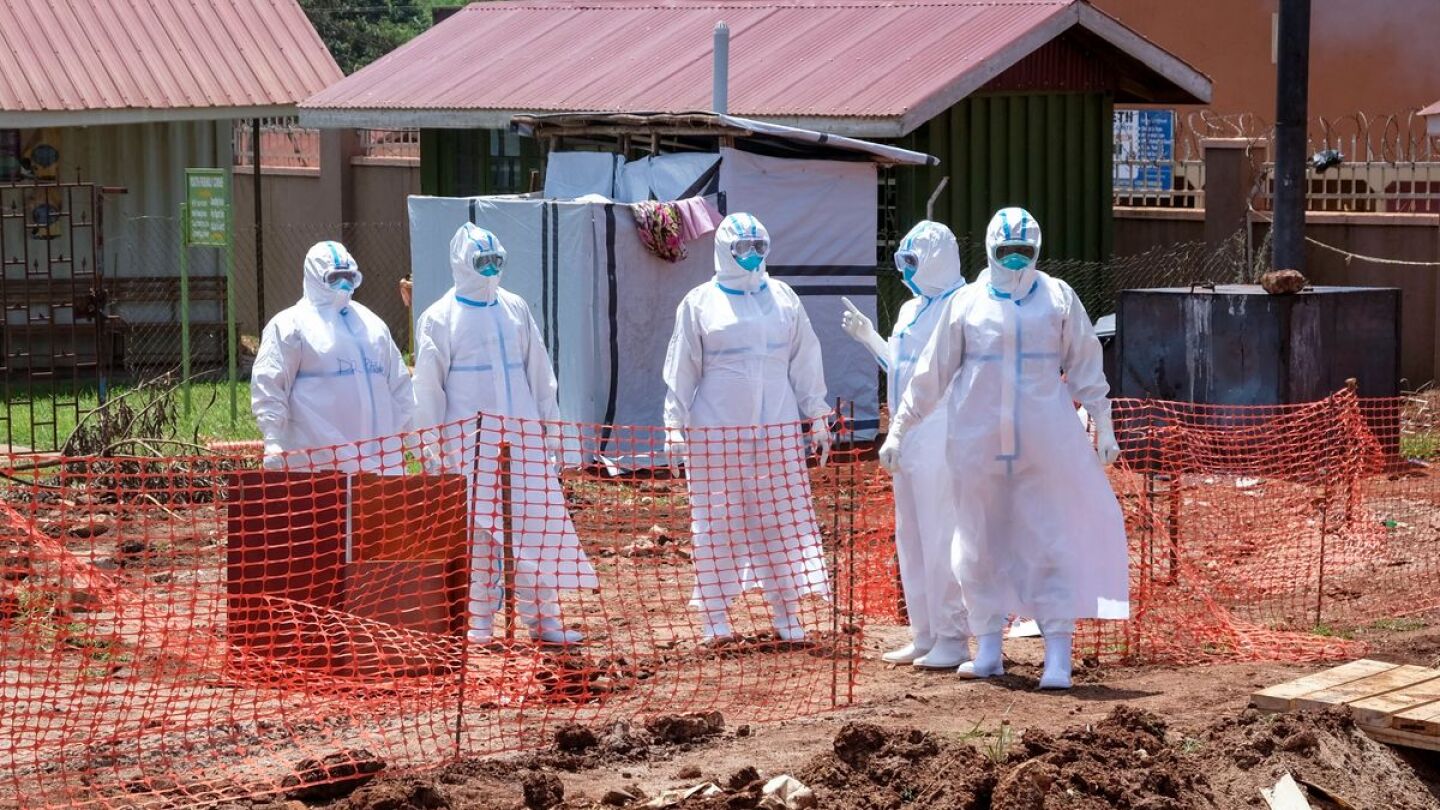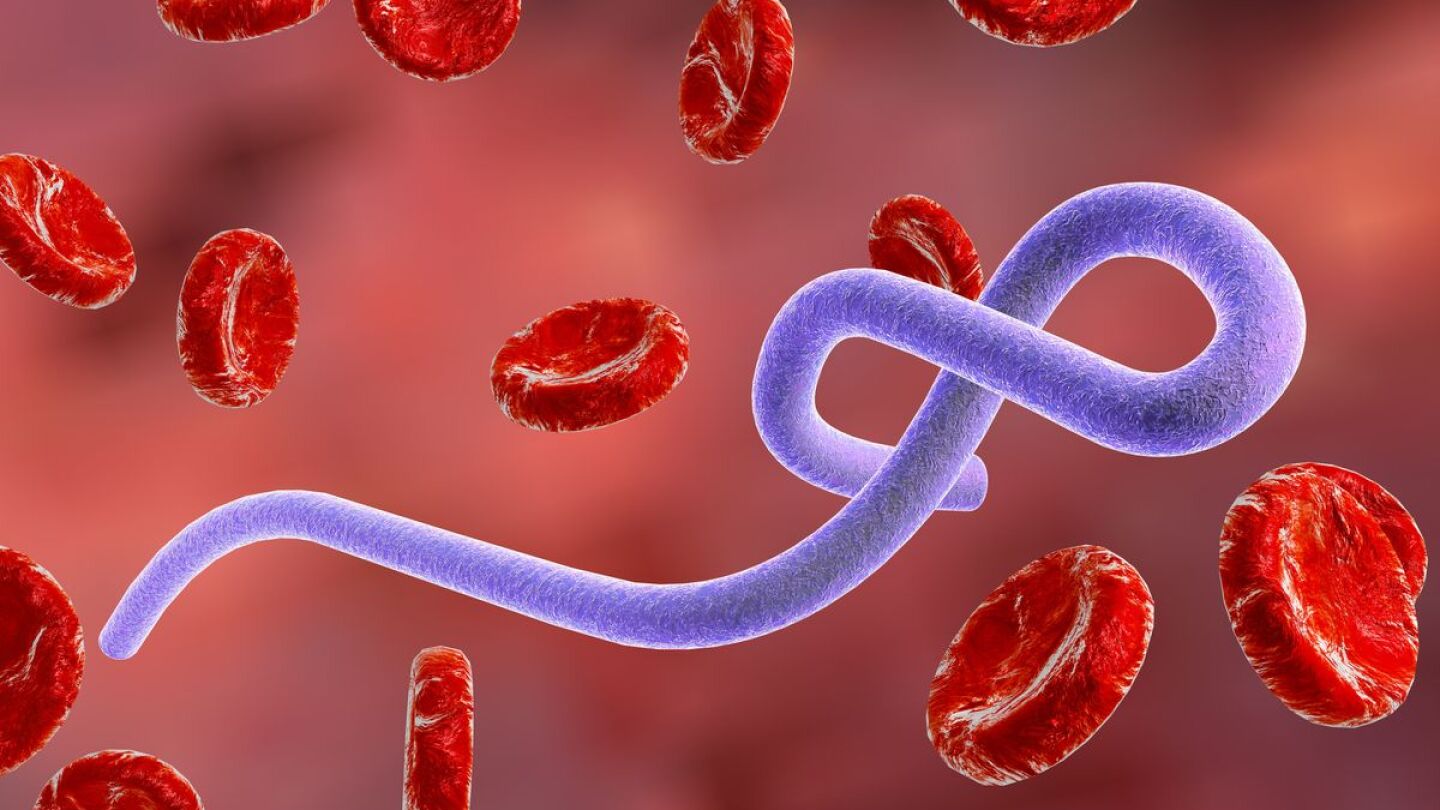Ebola
The Ebola topic features articles discussing how the Ebola outbreak happened, information EMS providers need to know and how EMS can identify symptoms and treat Ebola patients.
Disaster medicine expert Dr. Alex Isakov weighs in on infectious diseases on the horizon
CDC issues Health Advisory Network Health Advisory, for healthcare workers to be aware of the Ebola outbreak
Identify, isolate, and inform: The current situation on COVID, Ebola and Monkeypox
The plan would draw millions from HHS accounts, including an Ebola preparedness account, and fund vaccines, treatment and protective equipment
From dangerous active shooter events, to ET3, Ebola, opioids and community paramedicine, EMS providers faced many significant incidents and evolving trends in the 2010s
From mumps and measles, to the plague and Ebola, it is critical EMS is aware of the outbreaks, syndromes and conditions on the radar of public health
The Superior Ambulance team practices transporting patients with highly infectious diseases
The Jacksonville Fire and Rescue Department is the latest transport hub in the Florida Infectious Disease Transportation Network, used to transport patients with Ebola or other diseases
The Frederick Memorial Hospital is required to hold an annual drill as part of the grant funding to help with being an assessment hospital
Infectious disease monitoring expanded amid Ebola Outbreak in the Congo
EMTs and paramedics must protect themselves with PPE, investigate symptoms and report findings to the hospital to identify potential infectious disease outbreaks
As the Democratic Republic of the Congo reports another Ebola outbreak, is EMS prepared with proper protocols and PPE?
The Ebola exercise helps county first responders and hospital staff prepare for any patient who may need care for a highly infectious disease
Issues to be addressed include isolation and quarantine, disease surveillance and contact tracing
The vacuum-sealed units allow rescuers to safely help victims of chemical and biological attacks
Policy questions are coming at the presidential candidates from every direction; here are six questions EMS should want answered
A newly equipped ambulance uses a battery-powered pressurized plastic tent and air filtration system
17,000 survivors are trying to resume their lives though many battle mysterious, lingering side effects
Health officials have identified nearly 160 people who might be at risk of being infected with the disease, including eight health care workers
The new case was confirmed two months after the country was declared Ebola-free for a second time
EMS providers need to follow infection control guidelines for care and transport of patients with infectious, contagious and even deadly antibiotic-resistant organisms
Doctors have found Ebola can survive in some male survivors for up to nine months after they first get sick but aren’t sure if that means they might still be infectious
“There’s no question that a better and earlier response from WHO could have resulted in thousands and thousands of fewer deaths than we saw”
Chikungunya, a mosquito-borne virus that has historically been prevalent in Africa and Asia, is making its way to the U.S.
The patient traveled to a country with Ebola cases and was hospitalized after developing symptoms and notifying authorities
Saturday marked 42 days since Liberia’s last Ebola case, and officials declared the end of the epidemic seven months after the international outbreak
Officials describe decision for woman being monitored after returning from an epidemic country as “low risk situation and highly unlikely to be Ebola”
“The disease is way worse than I thought,” Dr. Luanne Freer, medical director for Yellowstone National Park, told Montana State University students
Ebola crisis validated findings and illuminated importance of EMS as an equal and vital component in healthcare system
MOST POPULAR
- Is EMS ready for another Ebola outbreak?
- EMS is the first line of defense against spread of infectious diseases
- Ebola drill prepares hospital and rescue workers for infectious patients
- WHO, World Bank Group unveil ‘Global Preparedness Monitoring Board
- Why Ebola patients should be triaged to specialty centers






















